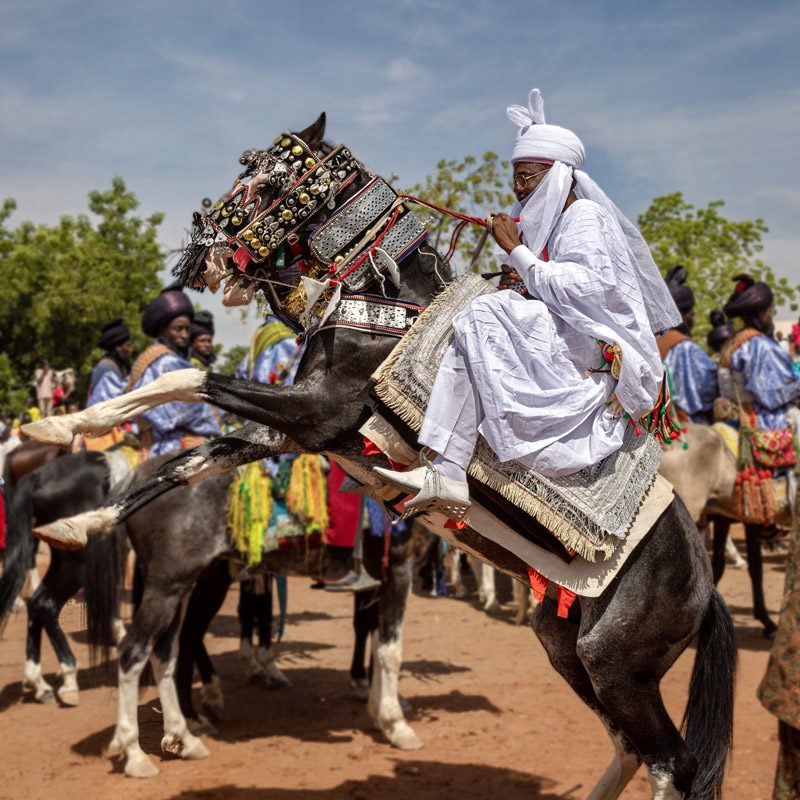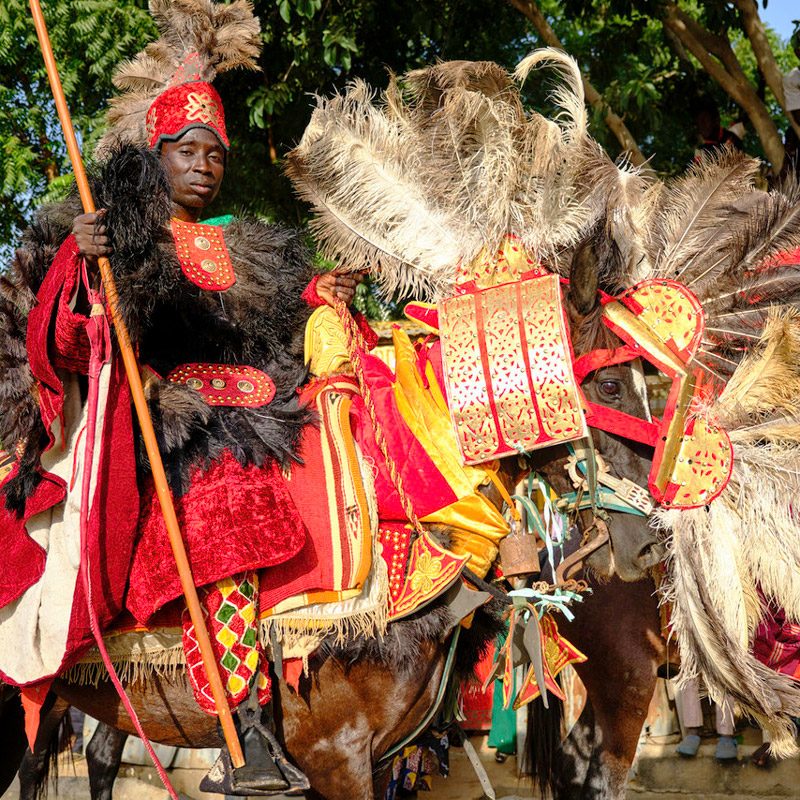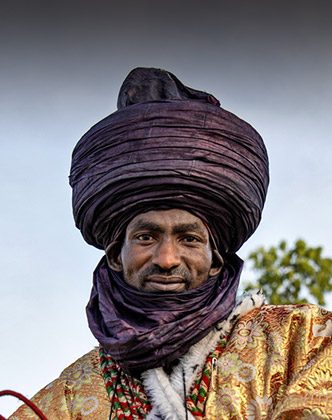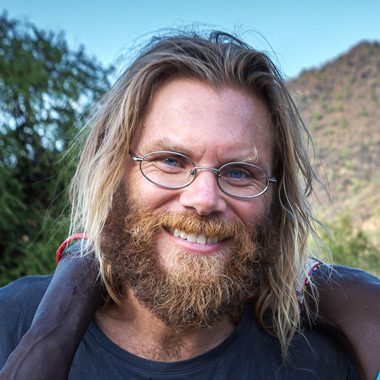The Durbar Festival is a cultural, religious and equestrian celebration held by the Hausa people annually, usually coinciding with major Muslim festivities. It was born as military parades in the 14th century. During the celebration of the Durbar Festival, each noble house parades before the Emir, acting as a regiment, to demonstrate their loyalty to him as well as displaying that they are ready to defend him in the event of war.
The word ‘Durbar’ comes from India, and it means ‘Court’. During the British rule of India in the 19th century, Durban’s began to be organized to gather the different rulers of British India to pay respect to the colonial masters. The Durbar Festival was introduced in Northern Nigeria in the early 20th century.
The different Hausa and Fulani (dominating tribes in northern Nigeria) rulers gathered in front of palaces and mosques, displaying richly decorated horses and camels, and wearing their best regalia. With time, the Durbar Festival has evolved into cultural displays of the Hausa Emirates. A sort of competition among the different traditional rulers and a sign of identity for northern Nigerians.

The Festival starts when the central figure of the Durbar procession, the Emir and his palace courtiers, officials and bodyguards appear on stage on their decorated horses. There are four processions, each serving a specific purpose and having its own timing and costumes. Much of the knowledge and skills related to Durbar –leather work, weaving, dyeing, embroidery and blacksmithing– are transmitted through informal training and hands-on practice within groups. Certain skills, such as horse preparation, riding and drumming, are taught on a weekly basis and intermittently.

Do you want to attend the Durbar Festival?
Discover our trips to Nigeria and experience the Hausa Durbar Festival first-hand. Click here to discover all our trips to Nigeria.

At Last Places, we like to describe Nigeria as ‘the Pakistan of Africa’. It’s overpopulated with over 220 million people, has a bad reputation (most of the time unjustified). Nigeria is full of amazing treasures to discover, such as the Durbar Festival. We’ve been operating in Nigeria since 2016 and love this unique West African destination.
© Photos by Jordi Zaragozà Anglès and Jorge Fernández taken during a trip to Nigeria.
